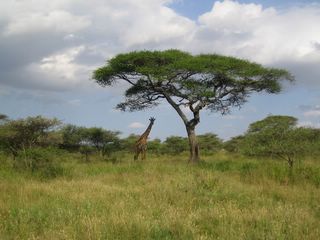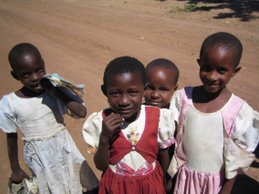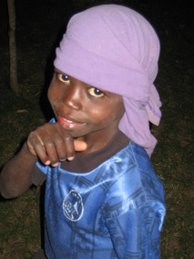Thoughts, reflections and things left unsaid
I've only been back a few hours but it already feels like my time in Tanzania could have been a dream. I think the most significant lesson I learned is that maybe the most important thing in life is your attitude. It was easy to be narrow minded and not think about the struggles of people around me: to feel frustrated at hustlers trying to sell their wares instead of respect at the persistence with which they try to eke out their minimal existence. On days I allowed myself to feel irritated, everything seemed to build up becoming more and more frustrating and alien. On days I thought more about the position of people around me, I felt humbled and extremely lucky. My trip was a truly amazing experience and one that I was only able to indulge in because of my extremely privileged background.
One of the things I will remember and admire the most about Tanzanians is their kindness and generosity. Travelling by myself in a strange country was perhaps the most daunting thing I’ve ever done, but I met such astonishingly good people my journey was much easier. Everywhere I went along the way I was invited into the homes and lives of people who had to nothing to gain from their kindness. People offered to help me find hotels, meet me in air and ferry ports, take me around town and even to stay in their house when they weren’t there!
I’ve read sooooo many books and studies on Africa, but nothing compares to actually seeing the everyday struggles of people. Being in a village that is only connected to minimal health care facilities through dodgy dirt roads and seeing the huge obstacles people face every day just to get to work things make much more sense. If nothing else, I come away from my stay in Tanzania with the overwhelming sense that infrastructure (roads, buildings, access to clean water) must be improved first and foremost. Children can’t go to school if they have diarreah from unsafe drinking water, the school is too far away for them to travel, or the roads are so dangerous they cause an accident that kills them on the way. Women would have more time to study if they spent less time fetching unsafe water; the more educated a woman is the less likely she is to catch HIV. I keep hearing that throwing money at the problem won’t help, which is true to a certain extent: throwing money at corrupt officials won’t help at all. But cutting off funding when so much needs to be done is not the solution either: development aid needs to be effectively spent so that people have a fighting chance of improving their lives. I’m not sure if my students learned anything during my weeks with them, but they (and everyone else I met) definitely taught me!















